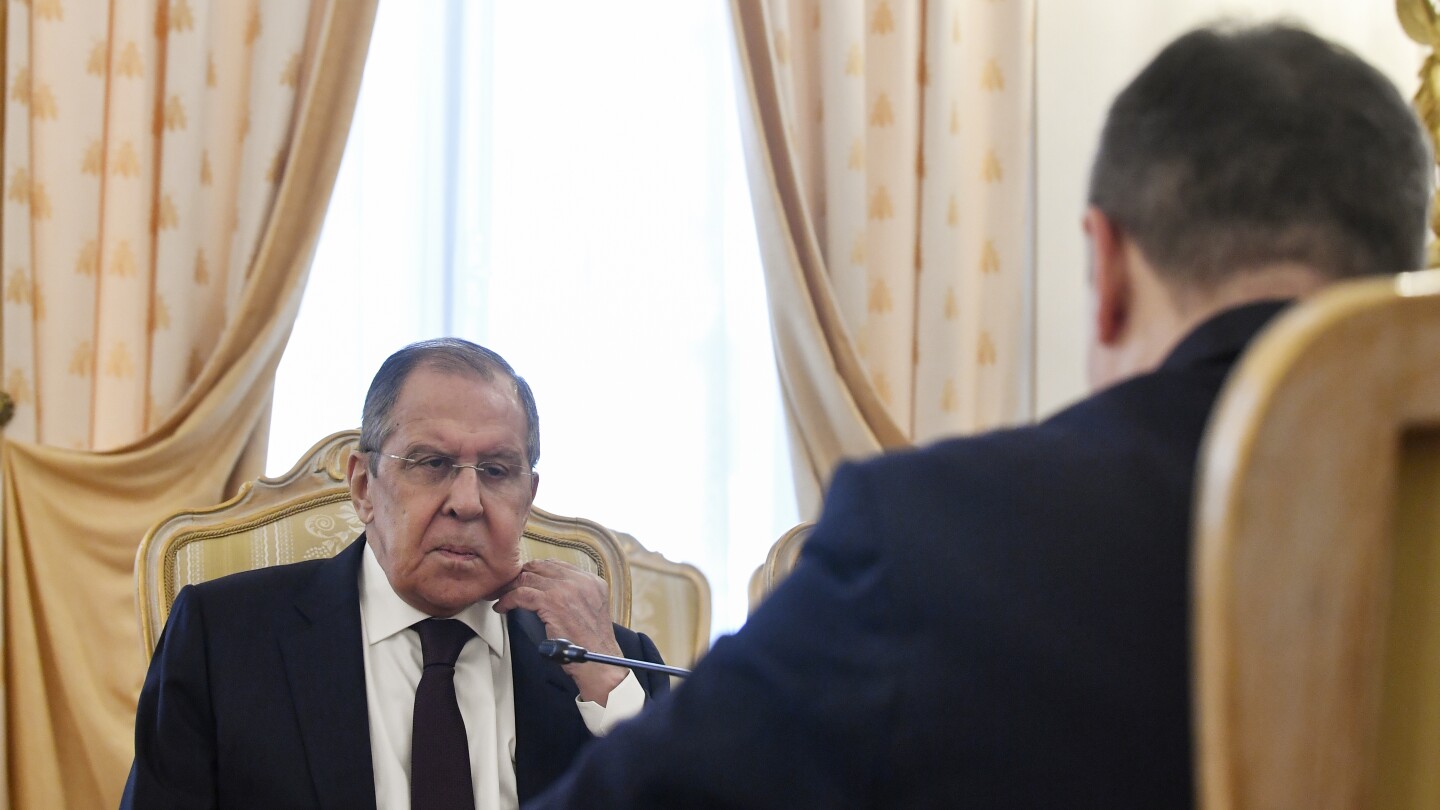MOSCOW (AP) — Russian Foreign Minister Sergey Lavrov met Thursday in Moscow with his Serbian counterpart ahead of a soccer game between the countries’ national teams that will be the Russian men’s squad’s first European friendly since the fighting in Ukraine began two years ago.
Russia was removed from international soccer competitions after sending troops into Ukraine in February 2022 but is not blocked from games with other national teams. Since the fighting started, the Russian national team has mostly organized friendlies against teams from Asia and Africa, as well as one game against Cuba.
“Such meetings strengthen the foundations of the international sports movement and are fully consistent with the principles of Olympism, which have been seriously tested in recent years,” Lavrov said in remarks opening the meeting with Serbian Foreign Minister Ivica Dacic.
“We consider it unacceptable to politicize sport. This Western line continues with the support of international officials. It doesn’t look like it will end anytime soon. It reflects the course taken by the ‘collective West’ led by the United States toward the politicization of all international relations, including trade and economic relations,” he said.
The Russia-Serbia game was to take place Thursday night at Moscow’s Dynamo Stadium.
Lavrov also said he and Dacic would discuss conditions in the Balkan region “where a serious situation has developed.” He did not elaborate but tensions between Russian ally Serbia and neighboring Kosovo, which split off from Serbia, remain high.
Although a European Union membership candidate, Serbia is besides Belarus the only European state which has refused to join sanctions against Russia over its aggression against Ukraine.
This is Dacic’s first trip to Moscow, although Serbian officials have met Lavrov and other Russian officials on the sidelines of international gatherings. Dacic is a staunch pro-Russian advocate.
A planned visit by Lavrov to Serbia in June 2022 did not take place, with Moscow accusing the West of preventing the trip by blocking the envoy’s plane flight. The cancelation followed reports that Serbia’s neighbors — Bulgaria, North Macedonia and Montenegro — had refused to allow Lavrov’s plane to fly through their airspace to reach Serbia.

